The Ukrainian army has seized part of Russia. Regional war in the Middle East is days, or hours, away. The latest jobs report suggests a recession is looming.
Yet the hottest issue in the U.S. presidential race with about 80 days to go is whether we should tax a fraction of the income earned by a tiny fraction of the labor force, many of whose members don’t pay taxes to begin with.
The political heat on that question isn’t being generated by a dispute between the candidates, either—it’s being generated by their agreement. Donald Trump’s campaign is furious that Kamala Harris copied his mega-pander to Nevada’s hospitality industry by endorsing “no tax on tips” herself.
It’s terrible policy, it’s insultingly trivial relative to America’s actual challenges, and the two nominees have the same position on it. It’s a neat microcosm of the unseriousness of the race since Harris replaced Joe Biden at the top of the Democratic ticket.
That’s not to imply that the campaign was serious before Harris took over. Biden’s case against Trump amounted to little more than “democracy is on the ballot,” which was true and good enough for dyed-in-the-wool Trump-loathers like me but didn’t put much meat on the policy bone for more fickle voters.
With his former running mate now leading the party, even the warnings about democracy have been mostly discarded. “Vice President Harris sees hope (or conflict exhaustion) as the primary motivator” for swing voters, Axios reported this weekend. “She believes voters are tired of doom-and-gloom.”
“Democracy is on the ballot” is too much of a downer. “Bringing back the joy” is where it’s at. And you know what? It’s working, better than anyone expected.
If this election cycle has proven anything thus far, it’s that the dynamics of the campaign can change quickly. But as of mid-August 2024, we’re mired in the most shockingly vacuous presidential contest of my lifetime. This year’s Republican primary, although nominally contested, was also surprisingly vacuous given the sharp ideological differences on the right, but big issues like U.S. policy toward Ukraine and Trump’s response to the pandemic did make cameos now and then.
Not so in the general election thus far. “Harris and Trump, under differing circumstances, and in different ways, have floated above what was once the perfunctory and deeply unsexy muck of campaigning on a platform, or for some particular issue, and seem to exist more as brands,” Jay Caspian Kang recently wrote for The New Yorker. “I can’t think of a race that was quite as unmoored as this one from the actual details of governance.”
It can’t last. Can it?
Harris will do interviews now and then. Trump will occasionally manage to stay on message for more than five minutes at a time. But I wouldn’t bet heavily against this sort of vacuousness persisting, more or less, all the way to November.
Harris benefits from avoiding policy, and Trump lacks the self-discipline to focus on it. Why wouldn’t this race remain a show about nothing until Election Day?
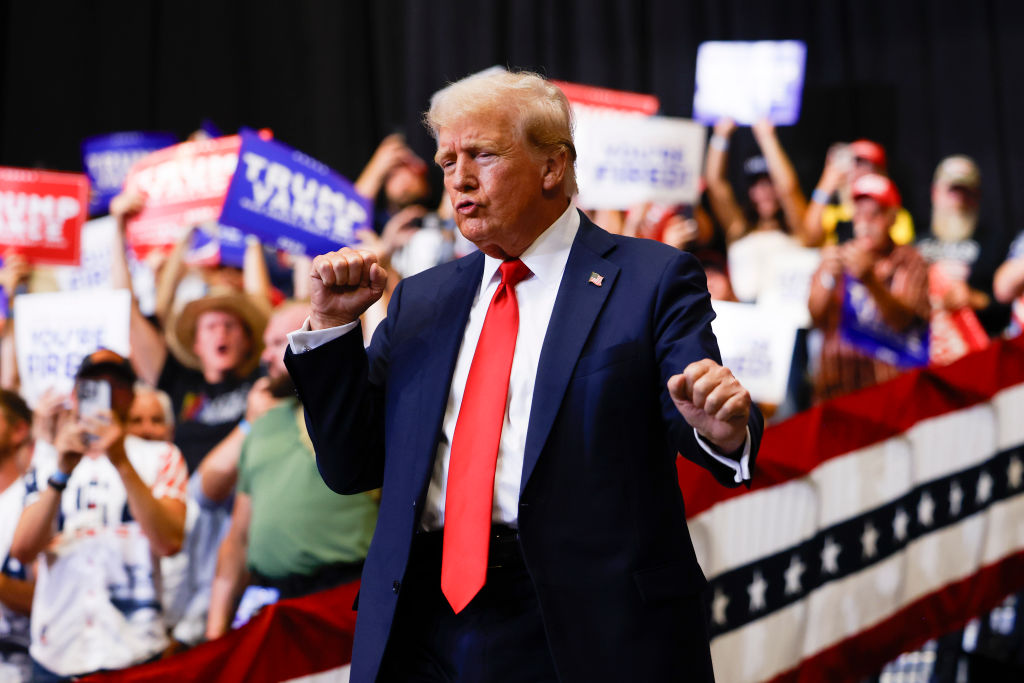
A referendum, not a choice.
The big news in politics as of Wednesday morning is that Harris is planning her first major policy speech as nominee later this week, unsurprisingly with a focus on inflation.
But don’t get too excited. “She will lay out an approach relatively light on details,” the New York Times delicately explained, citing sources close to her. There’s a method to that madness:
Some of Ms. Harris’s advisers believe that appearing as a relative blank slate on key issues—like trade and taxes—could help attract support from business groups put off by some of Mr. Biden’s policies.
Such an approach could also provide fewer targets for attack on policy particulars, the reasoning goes.
A blank slate. That sounds familiar.
Biden believed he would win if the race became a referendum on Trump, particularly his conduct after the 2020 election. But the president couldn’t execute his own strategy: Between his own policy baggage and his alarming cognitive impairment, voters couldn’t help but treat the election as a choice between two unfit candidates. And Trump, warts and all, was less unfit—at least based on the polls.
When a theory of victory performs as badly in practice as Biden’s did before he dropped out, it tends to be discarded. But Harris hasn’t discarded it. Interestingly, she seems to have adopted it in the belief that the logic behind it is sound. All it requires is a nominee who’s plainly more fit for office than the other guy is and a campaign strategy bent on neutralizing policy differences to the greatest extent possible, leaving fitness as the key distinction in the campaign. If the race becomes nothing more than a battle of the “brands,” to borrow Kang’s term, voters’ antipathy to Trump will reassert itself and she’ll win.
Harris is doing remarkably well with that approach.
A new poll by the Cook Political Report finds her leading Trump in five of seven battleground states and tied with him in a sixth. Three months ago, Trump led Biden in six of those states and was tied in the seventh. Overall, 56 percent of voters in those states see the new Democratic nominee as a chance to “turn the page of the Trump/Biden era” (which also sounds familiar), an inkling that the race is becoming just the sort of referendum the Biden campaign had once hoped for. Among the so-called “double haters” who view both Trump and Biden unfavorably, in fact, Harris is suddenly up 30 points on her Republican opponent.
A new Monmouth survey finds the same thing. In June, Biden led Trump among double haters by just 9 points, with 54 percent of the group refusing to support either candidate. With Harris now on the ballot, the same cohort is breaking her way by a margin of 53-11. An election that was a choice between two unfit candidates a month ago has suddenly become a referendum on one of them.
“For all their heavy breathing about the supposedly existential threat posed by Democratic policies, [Republican voters] freely chose the one man in the primary whom they knew would struggle to focus on that threat, let alone articulate it.”
“Harris’ ability to quickly and decisively win over those double haters is a reminder that the 2020 Biden coalition was more anti-Trump than pro-Biden,” the Cook Political Report’s Amy Walter explained. That’s the whole race right now in a nutshell. A show about nothing is ultimately a show about Trump, and there are enough anti-Trump voters out there to make a majority.
Of special interest to the pollster who conducted the survey for the Cook Political Report was the result when voters were asked which candidate makes them feel “safer.” One would expect the law-and-order authoritarian to win easily on that point over a liberal woman from San Francisco, but one would be wrong. Harris leads by a point. “We’re seeing how concerns about Trump’s erratic temperament and fixation on retribution are preventing him from converting relative strength on immigration, crime, the economy, and foreign policy into making people feel safer with him in charge,” pollster Patrick Toomey told Walter.
Trump can win when pitted against an opponent who’s also grossly unfit for office, but against a “blank slate” he’s in trouble. So that’s what Harris is going to be.
Insofar as she’s forced to take positions going forward, I suspect she’ll veer toward Trump’s stances as much as is feasible so that voters have less reason to let policy preferences influence their assessment of the two’s relative fitness. That’s what the “no tax on tips” mimicry is about. As for her light-on-details agenda, making clear that “she wants to break with Biden on issues on which he’s unpopular” without getting into details might suffice. It’s enough, perhaps, for voters to prefer her if they know that she and Trump are both running against the Biden record without getting into the weeds as to how.
The other benefit to Harris of running a show about nothing is that it leaves her own party’s many constituencies with no reason to object to her. The Cook Political Report survey finds her winning 91 percent of Democrats and leaners, 6 points better than Biden was managing. And Monmouth sees Democratic enthusiasm skyrocketing from 46 percent for a Biden-Trump rematch in June to 85 percent for a Harris-Trump contest now. Republican enthusiasm held steady at 71 percent in both months, meaning that the GOP has gone from a considerable energy advantage to a considerable energy deficit in a matter of weeks.
This may be the first time in electoral history that a candidate wins the presidency not so much by drawing a contrast with her opponent as by drawing a contrast with her own former running mate. Kamala Harris, blank slate, is neither Donald Trump nor Joe Biden. For the American left, the latter may be all that matters—especially after she threw progressives a bone by choosing Tim Walz over Josh Shapiro as her VP.
“Kinda weird for a vibes election to also feel existential,” one of my editors said this morning as we discussed the topic of this newsletter. Is it really so weird for Democrats, though? The right may perceive an existential threat from left-wing policies, but the existential threat that the left perceives in Trump has more to do with him normalizing postliberalism as a mode of governance. If steering the race away from policy and toward “vibes” helps voters focus on that, so much the better.
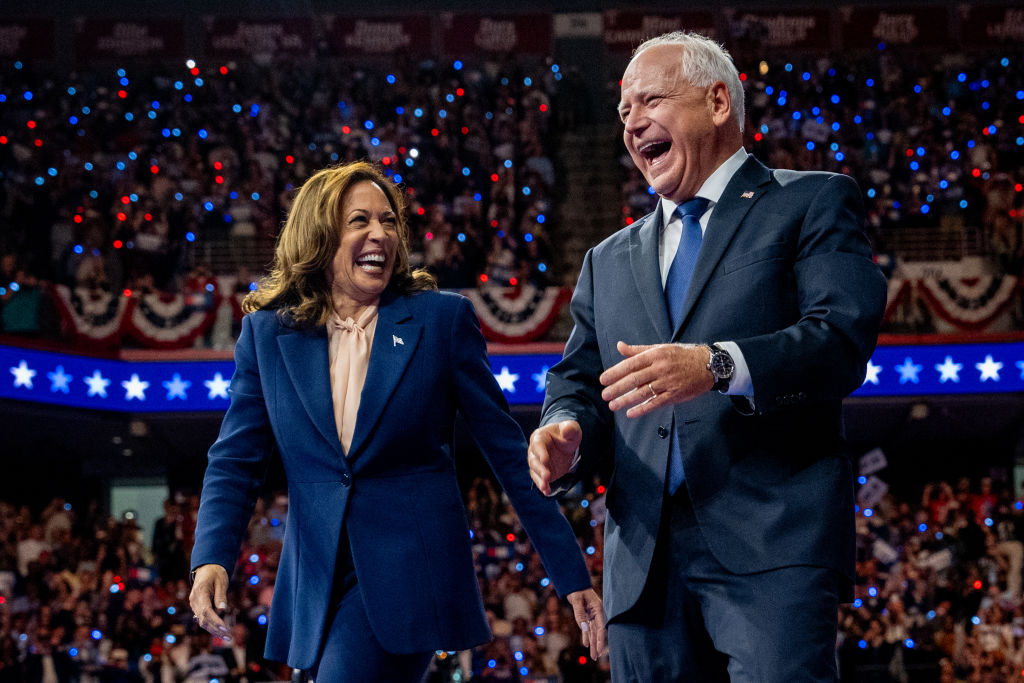
An undisciplined opponent.
An amusing subplot of the past month is cowardly anti-anti-Trump Republicans fretting about the mental breakdown Trump is having over losing his lead while trying not to say anything that might offend the man or his followers.
That’s been a problem for them since 2015. You can’t call him crazy when he’s acting crazy and remain a member of the tribe in good standing. To retain whatever meager status you’ve earned as a right-wing influencer, you need to pull your punches.
One way is to scapegoat others for Trump’s problems. That’s why populists have begun calling for a shake-up of Trump’s staff and partisan conservatives have started flogging the media for not somehow forcing Harris to answer tough questions. Normally it’s the candidate’s responsibility to prosecute an effective case against the other side, but in today’s GOP, nothing is ever the candidate’s fault.
The other way to pull your punches is to frame Trump’s insanity as merely some sort of tactical misjudgment. If you imply that he’s unfit for office by calling him I I crazy, you’re an enemy. But if you call his craziness counterproductive to the all-important goal of electing him and defeating the left, well, then you’re just trying to be helpful. You’re still viable to run for office as a Republican or host a show on Fox News someday.
Speaking of, guess who turned up on Fox News on Tuesday night to make the case that Trump’s craziness is counterproductive:
That’s a fun clip, particularly the part where Haley rattles off from memory a series of damaging positions Harris held in 2019. It’s as close as we’ll ever come to hearing her say, “Don’t you wish you had me as a nominee instead?”
Self-serving or not, though, Haley has a point. There’s no doubt that she or Ron DeSantis would have recognized Harris’ “blank slate” strategy for what it is and scrambled with ruthless message discipline to counterprogram it. To prevent Harris from turning the race into a show about nothing in which policy has been neutralized as a key consideration, they would have attacked the Biden administration’s record full-throttle, as well as Harris’ own far-left incarnation as a presidential candidate five years ago.
In fact, if Harris were pitted against Haley or DeSantis, I doubt she would have dared to affect a “blank slate” persona in the first place. What would have been the point? The “blank slate” is a strategy to make the election a referendum on Trump in the belief that he’s glaringly too unfit to prevail in a gut-check like that. It wouldn’t work against any normal-seeming Republican: An electorate asked to give an up-or-down answer on whether they’re comfortable with four years of Nikki Haley as president would decide in the affirmative.
Republican primary voters made Harris’ strategy possible when they passed on several competent candidates in favor of a wackaloon who’s veered lately from musing about whether Harris is black or Indian to fantasies about Biden reclaiming the nomination to truly insane conspiracy theories about computer-generated crowds. Of Trump’s three presidential runs, this one has been by far the least substantive policy-wise. Instead of “build the wall” or “great economy,” he’s running on retribution against his political enemies and keeping himself out of prison.
That’s what Republican voters wanted. For all their heavy breathing about the supposedly existential threat posed by Democratic policies, they freely chose the one man in the primary whom they knew would struggle to focus on that threat, let alone articulate it. Why shouldn’t the Democratic nominee take full advantage of the gift they’ve given her?
Just this afternoon, Trump gave a speech in North Carolina that was supposed to address the economy but he couldn’t resist hinting at his disinterest in the topic. “They say it’s the most important subject,” he told the crowd. “I’m not sure it is.”
On Tuesday night, a “Republicans for Harris” conference call reportedly drew more than 70,000 listeners. One wonders how many conservatives who backed Haley in the primary might cross the aisle this fall without a Republican nominee in place who’s capable of educating them on Harris’ record. Logically, the more the campaign becomes a pure referendum on Trump, the more likely right-wingers who withheld their votes from him once before this year might talk themselves into doing so again.
The only hope right now that Trump might be able to turn the campaign from a referendum into a choice is the fact that he and Harris will meet on the debate stage next month. But she’s apt to be aggressive in steering the discussion around to his policies instead of her own, the better to preserve her “blank slate” appeal. And if she does well and remains ahead in the polls, that might be the only debate she agrees to. Why risk another?
He’s going to have to make the case against her on the trail, day by day, through disciplined messaging. But that’ll be hard for him, partly because he isn’t on the trail much anymore and partly because he reliably loses focus whenever his mood deteriorates. There’s a decent chance that he’ll send some of his smarter advisers packing soon and replace them with populist yes-men, which will cause him to be even less disciplined as a candidate. And it’s quite likely that Harris’ lead in the polls will grow after the Democratic convention, further troubling his already troubled mind.
“Never interrupt your enemy when he’s making a mistake,” Napoleon supposedly said. Trump had the self-discipline to take that advice in July, when he uncharacteristically clammed up for weeks as Democrats bickered over Joe Biden’s fate. In a way, Harris is now following the same advice. She hasn’t clammed up altogether—she spent all last week barnstorming across the Midwest—she’s just saying nothing whatsoever of substance. And Trump, helpless to his own mania, keeps making mistakes in grasping for ways to respond.
If he goes on to lose because of it, what will his party learn?
Lessons from the fall.
The problem (well, one problem) with an election that’s about nothing is that it’s unlikely to impart any lasting political lessons. Or at least any productive ones.
If Harris’ “blank slate” strategy fails, Democrats will conclude that their nominee needs a bolder policy agenda in future elections, not just joyful “vibes”—and “bolder” will likely come to mean “more progressive.” Whereas if that strategy succeeds, its precedential value might be small. You can win a race by framing it as a referendum on the other guy if the other guy is as nutty as Donald Trump, perhaps, but Trump won’t be the nominee in 2028.
I think?
As for Republicans, no lessons are ever learned because Trump’s “rigged election” propaganda is designed to prevent that from happening. If he lost, it can only be because of fraud, not to his own spectacular incompetence and psychological fragility.
That’s especially so if he ends up losing to a Democrat running a campaign about nothing, we’ll be told. Along with his criminal indictments and the eleventh-hour Biden-Harris switcheroo, the fact that Harris might end up saying little about policy en route to victory will be treated as further cause to regard the result of the election as suspicious and illegitimate. How could voters actually elect Harris if they don’t know what she plans to do?
The only comic relief we’ll have in the post-election maelstrom is watching poor Nikki Haley tentatively scold him for having campaigned poorly against Harris, only to quickly abandon the critique after a burst of outrage from MAGA blows her hair back. She’s forever floating trial balloons to see if the GOP has come to its senses about him—desperate to believe that they might turn to her someday—and forever having them blow up in her face.
There will be no space politically this fall for an anti-anti-Trump Republican to blame Trump for his own defeat. A show about nothing is ultimately a show about Trump, as I’ve said. And if a show about Trump doesn’t get good “ratings,” there can only ever be one explanation.
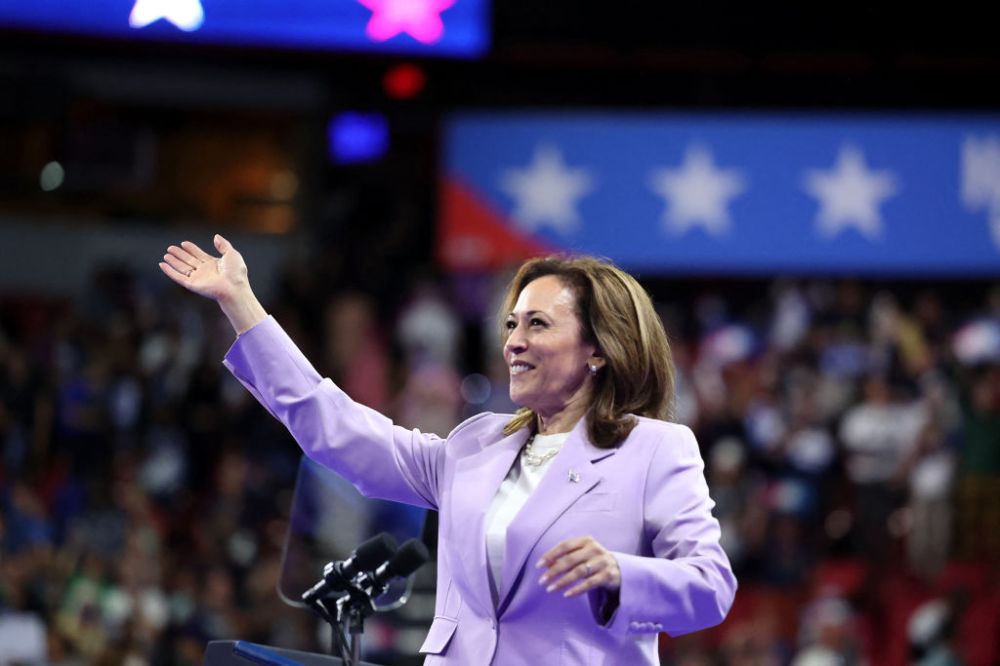

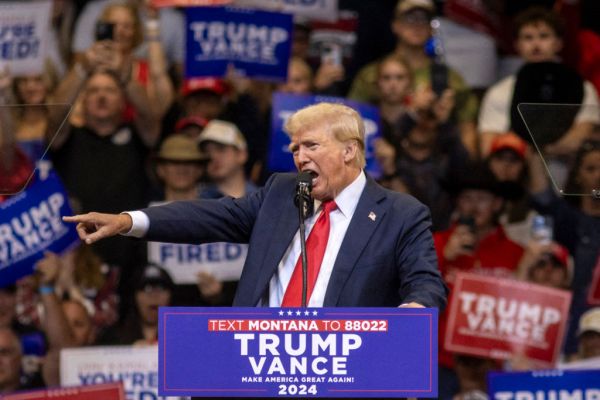
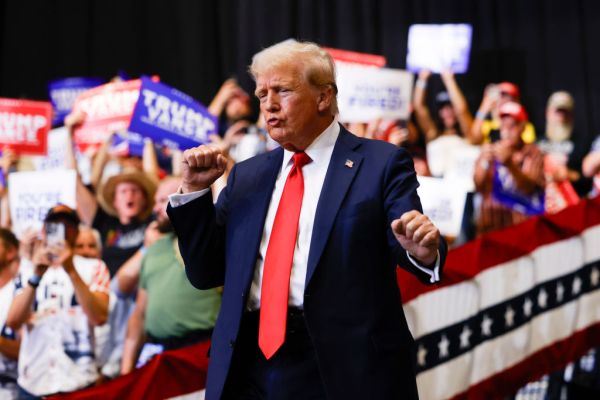
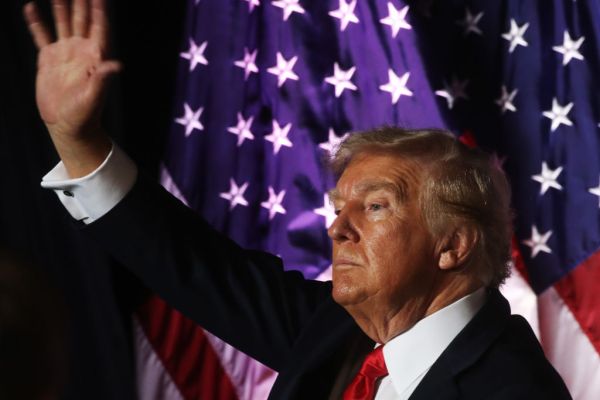

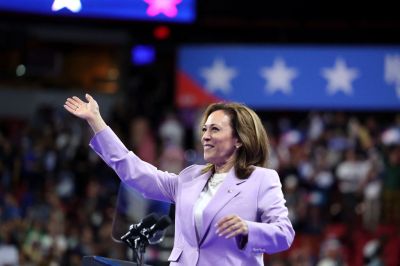
Please note that we at The Dispatch hold ourselves, our work, and our commenters to a higher standard than other places on the internet. We welcome comments that foster genuine debate or discussion—including comments critical of us or our work—but responses that include ad hominem attacks on fellow Dispatch members or are intended to stoke fear and anger may be moderated.
With your membership, you only have the ability to comment on The Morning Dispatch articles. Consider upgrading to join the conversation everywhere.